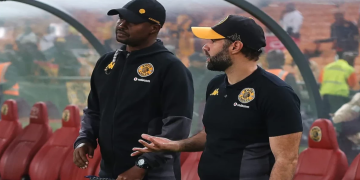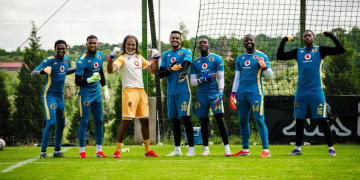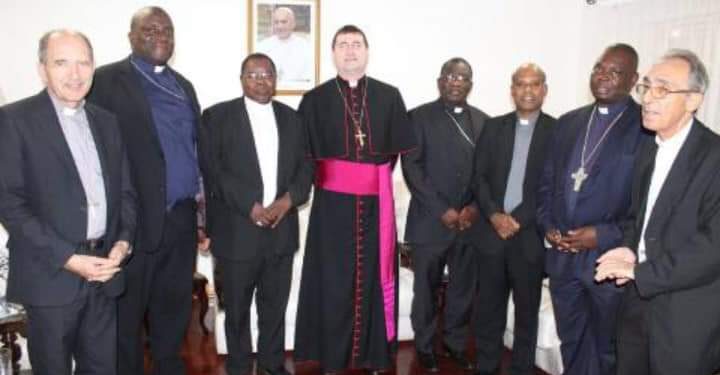Zimbabwe Catholic Bishops Conference Letter on Zimbabwe crisis has triggered a response from the Zimbabwe government.
Find the letter below:
Pastoral Letter of the Zimbabwe Catholic Bishops’ Conference On the Current Situation in Zimbabwe
14 August 2020
1. Introduction
John Robert Lewis, an American politician and civil-rights leader, who served in the United States House of Representatives, died recently. At his funeral he was praised for recognizing that the march for freedom is not ended even in the present time in which we live. This too is our challenge in Zimbabwe today between those who believe in a past and completed liberation and those who realize that the march is not ended. Peace building and nation-building are never completed tasks. Every generation has to establish national cohesion and peace.
2. Current Events
The struggle in Zimbabwe, between those who think they have arrived and those on the march has resulted in a multi-layered crisis of the convergence of economic collapse, deepening poverty, food insecurity, corruption and human rights abuses among other crises in urgent need of resolution. The call for demonstrations is the expression of growing frustration and aggravation caused by the conditions that the majority of Zimbabweans find themselves in. Suppression of people’s anger can only serve to deepen the crisis and take the nation into deeper crisis. This comes on the backdrop of unresolved past hurts like Gukurahundi which continue to spawn even more angry new generations. The voices of various governments, the European Union, the African Union and the UN on the desperate situation in Zimbabwe have not only confirmed the seriousness of human rights breaches by government agents but the need to rally behind #zimbabweanlivesmatter. Following the government crackdown on dissent after the 31″ of July demonstrations we have also witnessed attempts by President Cyril Ramaphosa of South Africa to intervene by sending a special envoy. Their failure to make broad consultations with the Church and civic society at this most tempestuous time was most regrettable. Was this not an opportunity missed? In the meantime, some of our people continue to live in hideouts, with some incarcerated while others are on the run. Fear runs down the spine of many of our people today. The crackdown on dissent is unprecedented. Is this the Zimbabwe we want? To have a different opinion does not mean to be an enemy. It is precisely from the contrast of opinions that the light comes. Our Government automatically labels anyone thinking differently as an enemy of the country, this is an abuse.
Corruption
…the ruler demands gifts, the judge accepts bribes, the powerful dictate what they desire” Micah 7:3
The corruption in the country has reached alarming levels. Government and civic society are agreed that corruption is chocking the economy, and compromising our justice system. While there is this acknowledgement there hasn’t been equally a serious demonstration by government to rid the country of this scourge. The ‘catch and release’ approach makes the ordinary man in the street question the sincerity of government to deal effectively with corruption. Is there no connection between what some journalists are unearthing about the government officials’ endemic corruption and their arrest? In Micah 7:1-6 the prophet is miserable over the state of his nation. Nobody can be trusted, and people wait in ambush to do violence to each other. This sad and sorry state, Micah says, is because leaders could not be trusted. they used their power for personal gain. Micah was from the countryside, a prophet who proclaimed God’s reproofs to the rich and ungodly leaders of Judah. Micah, like many of the prophets. champions the poor and the oppressed. With brutal honesty, he communicated a message of justice and mercy. He cared for God’s people with profound compassion. Micah graphically condemns Israel’s corrupt leaders and exposes their hypocrisy. God, the prophet says, is not fooled when leaders mouth the right words but have corrupt hearts. Political corruption, greed, arrogance was common amongst the leaders of his time. They didn’t care about the corporate or common good. Micah says that when leaders lose their way, it is because they no longer see themselves as servant leaders. They endanger everyone in the organisation or nation. Servant leaders place the interests and needs of their followers ahead of their self-interests and needs. Generally, they value the well-being and development of their followers, building their communities, acting authentically, and sharing power. The premise of servant leadership is that the most effective and influential leaders are those who strive to serve others rather than take control or be in charge. The servant-leader will continually think about what involves the least damage or pain for the people over whose lives they have power. Servant leaders will value the worth of every person. The organisation or nation they build will honour the importance of every individual. The prophet Micah proclaims a message that is especially relevant to the conditions we face in our society and country.
4. Heroes and Defence Forces Days.
We have just celebrated the Heroes holiday and the Defence Forces day in which we recall and express gratitude for the immense sacrifices made by our war heroes. Most of our people contributed to the success of war effort in various ways. We remember Thomas Mapfumo and others who through their music conscientious the people about the struggle and the reasons for it. We know of business men and women, teachers, the mujibhas and chimbwidos whose support was the difference between winning the war and losing it. As a nation we must appreciate and be grateful to those who despite not holding a gun made an immense contribution of supporting the cause. As your Shepherds we are sensing that our national leaders want to take us back to the mentality and practices of the war times where it was ‘us against them’. We want our politics to build a united nation and not to divide us, turning the military who ought to continue the memory of the late heroes against the people who fed them and clothed them and who gathered intelligence at great risk and saved many of our fighters from peril. Some of our vocal political leaders are busy re-creating the war situation of us and them, abdicating from the responsibility to build a united nation. Have we not all been divided by this divisive political environment to the detriment of the national common good? As we recognize the sacrifices made by all our people towards our liberation, we continue to worry about what has become of “gutsa ruzhinji” the mantra of the war times and the 80s. This is only possible when we build a robust economy capable of benefiting the poor and the marginalized who perhaps because of the war lost opportunity to study and educate themselves or their children. While we understand the need to re-engage with the global economic community we ought as well not to lose sight of the impoverished and marginalized Zimbabweans. For example, the newly signed agreement between the Zimbabwean Government and the former commercial farmers does not feature or include the interests of the farm workers and their families who lost livelihoods. While we appreciate the effort of resolving the land question, we think that it should also show concern for the most vulnerable. It seems to us that Zimbabwe is driving itself fast in the direction of capitalism thinking that this will bring untold benefits for our people. We neat to be cautious as Pope Francis reminds us, “Some people continue to defend trickle-down theories which assume that economic growth, encouraged by free market, will inevitably succeed in bringing about greater justice and inclusiveness in the world. This opinion, which has never been confirmed by the facts, expresses a crude and naive trust in the goodness of those wielding economic power and in the sacrificed workings of the prevailing economic system. Meanwhile the excluded are still waiting. To sustain a lifestyle which excludes others, or to sustain enthusiasm for that selfish ideal, a globalization of indifference has developed. Almost without being aware of it, we end up being incapable of feeling compassion at the outcry of the poor….” (Evangelii Gaudium 2013). As your Bishops. we feel that this described situation is true of Zimbabwe. It feels as though the poor have no one to defend them. They don’t seem to feature on the national agenda. Their cries for an improved health system go unheeded. Their plea for a transport system that meets their transport blues are met with promises and more promises and no action. The only time we see real action is when our leaders are jostling for power to secure it or to ascend to offices of power. It is not clear to us your Bishops that the national leadership we have has the knowledge, social skills, emotional stability and social orientation to handle the issues that we face as a nation. All we hear from them is blame of our woes on foreigners, colonialism, white settlers and the so-called internal detractors. When are we going to take responsibility for our own affairs? When are we going to submit to the requirements of national accountability? While our neighbours in the region are strengthening their democratic institutions, we seem to be weakening ours. Our Chapter 12 institutions, the judiciary and Prosecuting Authority seem to be losing their independence and effectiveness. Our health care institutions have collapsed. Our well-trained doctors and nurses remain incapacitated. For a long time, they have felt neglected. As Bishops we have tried to open an honest dialogue on our health care personnel and the health care institutions and the door was shut in our faces. In the face of growing numbers of COVID-19 infections where does the nation turn to? With the necessary tools in short supply in our hospitals, we notice with wounded hearts that government officials seem to have more PPE than our nurses and doctors.
5. National Transformation
“What man is wise enough to understand this? Who has been instructed by the Lord and can explain it?’ Jeremiah 9:12
We feel that the government is focused on things other than national democratic priorities. This amounts to dereliction of duty. Good leaders are wise enough to see when change and innovation are necessary. They see the gap —of how things are and how they should be — and they seek to close that gap. Deep-seated values guide them. They are willing to make systemic changes to uplift the lives of all. Jeremiah was a passionate prophet. His straight talk to the leadership of his time brought him great personal suffering. But he was devoted to his people and would not keep quiet when leaders deliberately mislead their followers. Jeremiah, despite widespread opposition, endures and is faithful to his God-given mission. The prophet’s commitment and integrity stand in stark contrast to the leaders of his time. Jeremiah shows that, sometimes, some of the most important change and innovation comes about when leaders are willing to listen. An effective leader is one who sees the gaps and wisely works on the things that need to change. Good leaders are called to confront the gaps into which many fall and feel abandoned. Poverty is one such gap. Confrontation is one of the toughest tasks of leadership. It is also one of the most courageous and important things a leader can do. Jeremiah is not interested in leaders who speak politically correct words. He is more concerned about their ability to act and bring about the structural change needed so that all are treated with dignity. Leaders who are committed to building a better organisation or nation are those who have a compelling sense of what is right. Deep-seated values guide them. Their principles are at the core of their decision-making process. They are willing to name what is not working, have difficult conversations and then make tough decisions. They do not shy away from the problems. They are faithful to the people they lead — not their own aspirations or political egos. Refusal to listen to the people has led us to where we are today. Loud cries on social media and attempts to demonstrate in a very repressive environment like this is a clear sign that Zimbabweans feel that the government has turned their back on them.
6. The Comprehensive National Settlement Framework Proposal The National Convergence Platform (NU) a platform made up of different Apex Church bodies, Civil society organisations. Business bodies, and Professional bodies, recently launched its proposed comprehensive national settlement framework to resolve Zimbabwe’s complex challenges on 5 August 2020. The Comprehensive National Settlement Framework (CNSF), seeks to establish consensus amongst the citizens as to what should constitute a comprehensive agenda towards a lasting solution for Zimbabwe’s challenges. This is a deliberate effort to build a convergence agenda amongst citizens towards the Zimbabwe We Want. The comprehensive national settlement framework makes a clarion call on five core issues that the nation must resolve in order to extricate itself out of the current malaise. The issues are as follows:
I. A victim-led process which adheres to globally accepted norms and international law;
2. A broadly agreed reform process towards constitutionalism and the rule of law:
3. A new social contract on the basis of an inclusive national economic vision;
4. A broad-based and inclusive national humanitarian and emergency response, and
5. Mending of regional. continental, and global relations. We already emphasized the necessity of the above-mentioned processes in our ecumenical discussion document. The Zimbabwe We Want of 2006. Fourteen years have already gone by. We make an urgent plea to peace and nation building through inclusive engagement, dialogue and collective responsibility for transformation. We are also conscious that the covid-19 pandemic will expose us to new challenges for the foreseeable future. Indeed, as John Lewis realized, the march is never ended, but together we will overcome.
God Bless you all.
Robert C. Ndlovu, Archbishop of Harare (ZCBC President)
Alex Thomas, Archbishop of Bulawayo (ZCBC Vice President)
Paul Horan, Bishop of Mutare (ZCBC Secretary/Treasurer)
+Michael D. Bhasera, Bishop of Masvingo & Apostolic Administrator of Gweru
+Albert Serrano, Bishop of Hwange
+Rudolf Nyandoro, Bishop of Gokwe
+Raymond Mupandasekwa, Bishop of Chinhoyi
ZIMBABWE CATHOLIC BISHOPS’ CONFERENCE
Find Jobs on Vacancy Mail










